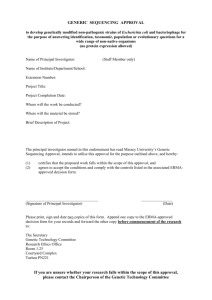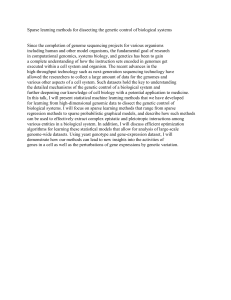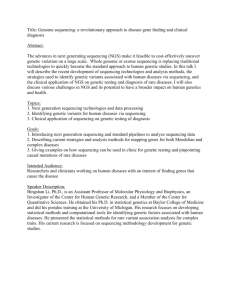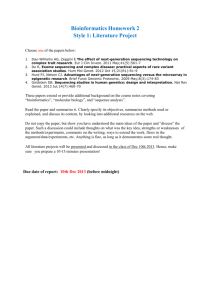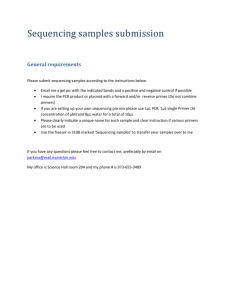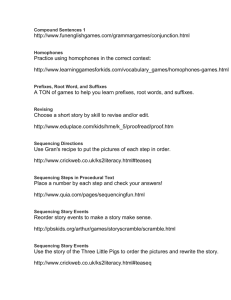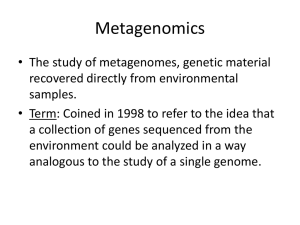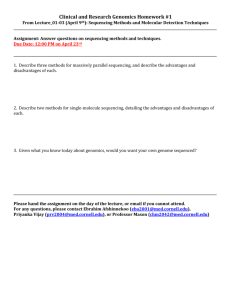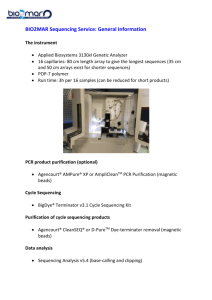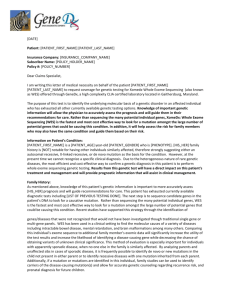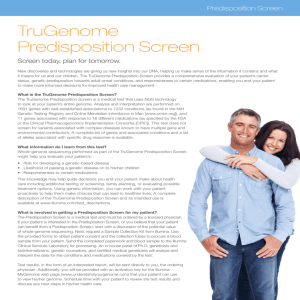Genome ethics abstract
advertisement
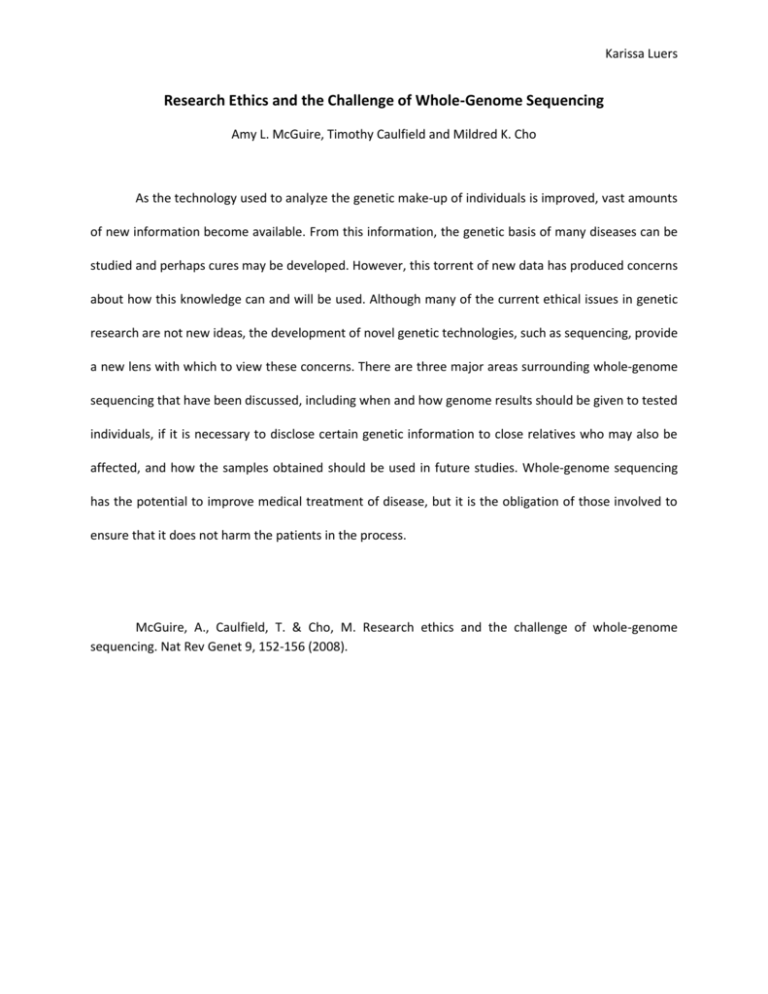
Karissa Luers Research Ethics and the Challenge of Whole-Genome Sequencing Amy L. McGuire, Timothy Caulfield and Mildred K. Cho As the technology used to analyze the genetic make-up of individuals is improved, vast amounts of new information become available. From this information, the genetic basis of many diseases can be studied and perhaps cures may be developed. However, this torrent of new data has produced concerns about how this knowledge can and will be used. Although many of the current ethical issues in genetic research are not new ideas, the development of novel genetic technologies, such as sequencing, provide a new lens with which to view these concerns. There are three major areas surrounding whole-genome sequencing that have been discussed, including when and how genome results should be given to tested individuals, if it is necessary to disclose certain genetic information to close relatives who may also be affected, and how the samples obtained should be used in future studies. Whole-genome sequencing has the potential to improve medical treatment of disease, but it is the obligation of those involved to ensure that it does not harm the patients in the process. McGuire, A., Caulfield, T. & Cho, M. Research ethics and the challenge of whole-genome sequencing. Nat Rev Genet 9, 152-156 (2008).
